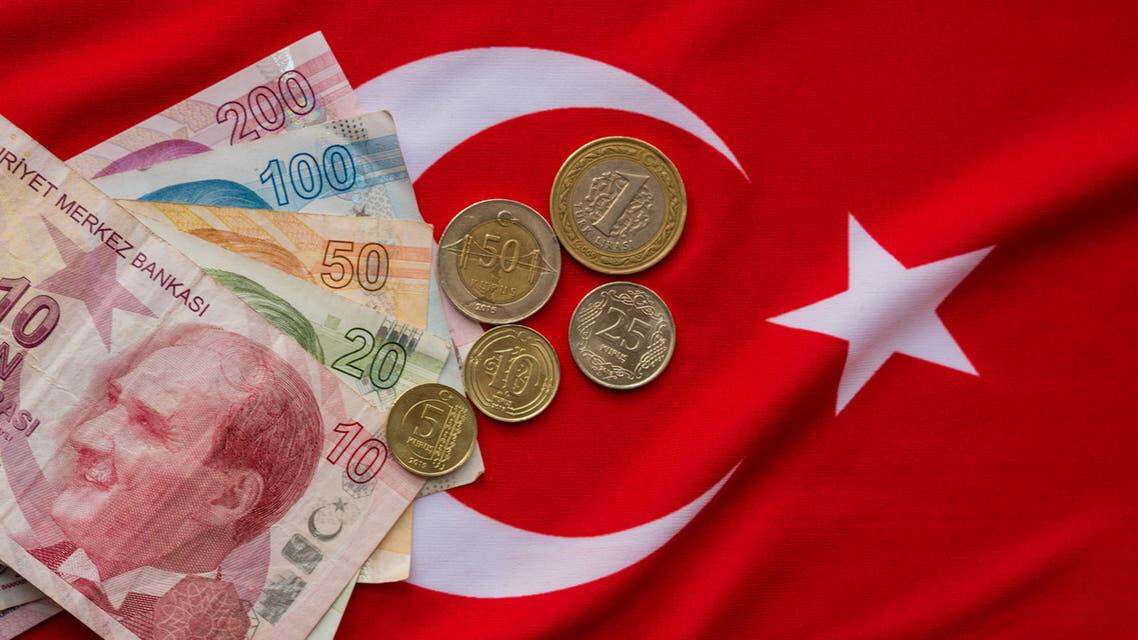During the past three months, some Turkish cities witnessed widespread popular protests due to the deterioration in the exchange rate of the Turkish lira, and the unprecedented rise in the prices of basic commodities. Last December, tensions rose as merchants took to the streets to warn of the dangers of the political system’s tendency to lean on religious interpretations to explain the current currency crisis. The Turkish Businessmen Association sounded the alarm in a statement warning the Turkish President of the dangers of continuing the current monetary policy, given that its repercussions are no longer confined to the business sector, but rather threaten citizens’ livelihoods.
Despite the regime’s ability to contain the protests, they were extremely significant, given this is one of the rare times during the Justice and Development Party’s rule in which citizens protested about economic conditions. It can be argued these protests are a harbinger of growing problems, as the state of popular discontent not only relates to the depreciation of the national currency, but also to the deteriorating living conditions, the confusion over monetary policy, and rising political polarization.
These protests are different from the demonstrations that erupted in 2013, known as Gezi Park, as there are several new factors involved, these include:
The Turkish currency crisis: Recent protests in Turkey are linked to the collapse of the lira’s exchange rate, in parallel with significant economic pressures. Although the price of the lira fell slightly in 2018, due to escalation of tension at the time with Washington and the European Union, the current situation appears to be very different. This is due to President Erdogan’s intervention in monetary policies, and his insistence on reducing the interest rate on bank deposits despite the country’s high inflation rates. This has resulted in capital flight and the rapid deterioration of the value of the lira, as lowering the interest rate in times of high inflation is an unusual step to adjust the economic situation.
Although the lira achieved an unexpected recovery on December 23rd, thanks to Erdogan’s measures, which included forcing local banks to sell a large amount of dollars with the support of the Central Bank, the measures prompted a noticeable decline in Turkey’s foreign exchange reserves. Moreover, the improvement in the Lira’s position proved temporary, and it soon resumed its decline, weakening by 2.7% in the first trading of 2022.
Sensitive timing: The protests come at a sensitive time for the Turkish regime, coinciding with rising criticism of President Erdogan by the opposition, who accuse him of failing to manage the lira crisis. On December 24th, the head of the Republican People’s Party – the largest Turkish opposition party – attacked the new measures taken by the government to protect Turkish deposits, saying that the regime has “now brought us a new system, they have given guarantees in dollars. So, we might as well dispense with the Turkish lira for good.”
There have also been growing calls to dissolve the government and heading hold early elections. Opposition forces have recently sought to unite against Erdogan and have reached an agreement to work towards restoring a strengthened parliamentary system. Six parties joined this agreement, namely the Republican People’s Party, the Good Party, the Future Party, the DEVA Party, the Felicity Party, and the Peoples’ Democratic Party, and aim to limit the president’s legislative, executive and judicial powers.
The recent protests have cast a shadow on the Turkish president and the Justice and Development Party, with Erdogan’s popularity waning due to his economic policy, while it was previously a guarantor of his success. The Turkish opposition is trying to take advantage of this declining popularity to press for early elections, or at least to consolidate its own political position before the elections scheduled for 2023. This is a matter of concern for the ruling Justice and Development Party, which is seeking to consolidate its internal front, and quietly deal with the protests.
Wide scope of protests: Although the largest protests against the devaluation of the lira came in major cities, especially Ankara and Istanbul, they spread to other areas as well. Several Turkish provinces expressed their solidarity with these demonstrations, especially border provinces. The most significant events took place in the city of Edirne, where Bulgarian citizens took advantage of the decline in the lira and breached the Turkish border in mid-December to buy goods at low prices.
Turkey has also witnessed protests unrelated to the lira crisis in recent months. Kurds in the southeast of Turkey demonstrated against Turkish state institutions systemic oppression of Kurdish citizens. There were demonstrations in March in response to Turkey’s exit from the Istanbul Agreement to combat violence against women, and student demonstrations at the Bosporus University against the appointment of an academic linked to the ruling Justice and Development Party. In August, the country witnessed large-scale demonstrations against Syrian refugees.
Strong external pressures: Turkey has not previously faced such a high level of regional and international pressures. Tensions with the Biden administration threatened a rupture in relations, especially with Washington’s criticism of authoritarian practices in Turkey, and its insistence on excluding Ankara from the F35 fighter jet production program after it acquired the Russian S400 missile defense system. Tensions also rose with the European Union after the European Council’s decision in December to suspend Turkey’s membership talks.
Potential scenarios
There are a number of scenarios for how Turkish authorities will deal with the protests:
Maintaining current policies: President Erdogan may continue his interventions in monetary policy and insist on cutting interest rates on deposits without considering the negative economic repercussions on the lira’s exchange rate. This would probably make living conditions worse. President Erdogan so far pledges to continue his same policies, disregarding criticisms from international financial institutions as well as domestic protests. Instead, the president talks of fighting what he calls extortion and currency speculators, with the aim of stimulating growth and production and boosting exports.
Seeking ways to appease protestors: The regime may try to calm protests by searching for new economic alternatives. There are indications of this approach, such as the pressure applied on local banks to increase dollar sales, as well as the Governor of the Central Bank’s announcement on December 24th of the expansion of currency swap agreements with some countries. According to statements by Central Bank Governor Shehab Koccioglu on December 23rd, talks are underway between the Turkish Central Bank and its counterparts in Azerbaijan and the UAE regarding a possible currency exchange agreement. The currency swap mechanism is one of the methods used by countries with large commercial exchange to finance part of their trade relations. Moreover, President Erdogan announced on December 23rd that the minimum wage will be raised by about 50% to 4,250 liras (USD275.44) per month, as part of measures aimed at alleviating the impact of the currency collapse and high inflation.
Abandoning the current economic model: Under the weight of the deteriorating lira, rising popular anger, and the inability to improve living conditions, President Erdogan, who is approaching pivotal elections in 2023, may choose to abandon his current economic policy. This, however, appears the least likely scenario. Observers of the Turkish economy expect President Erdogan to continue his battle against interest rates, as he has described what is happening in the lira exchange market as temporary, asserting that Turkey is building a new economic model. In his statements on December 8th, Erdogan called on Turkish citizens to have patience and confidence in the government’s new economic model, which prioritizes economic growth led by low interest rates.
The continuation of President Erdogan’s monetary policies may push society over the edge, if the deterioration in the price of the lira cannot be stemmed. Recent demonstrations indicate worsening living conditions and a steep decline in the regime’s popularity.


